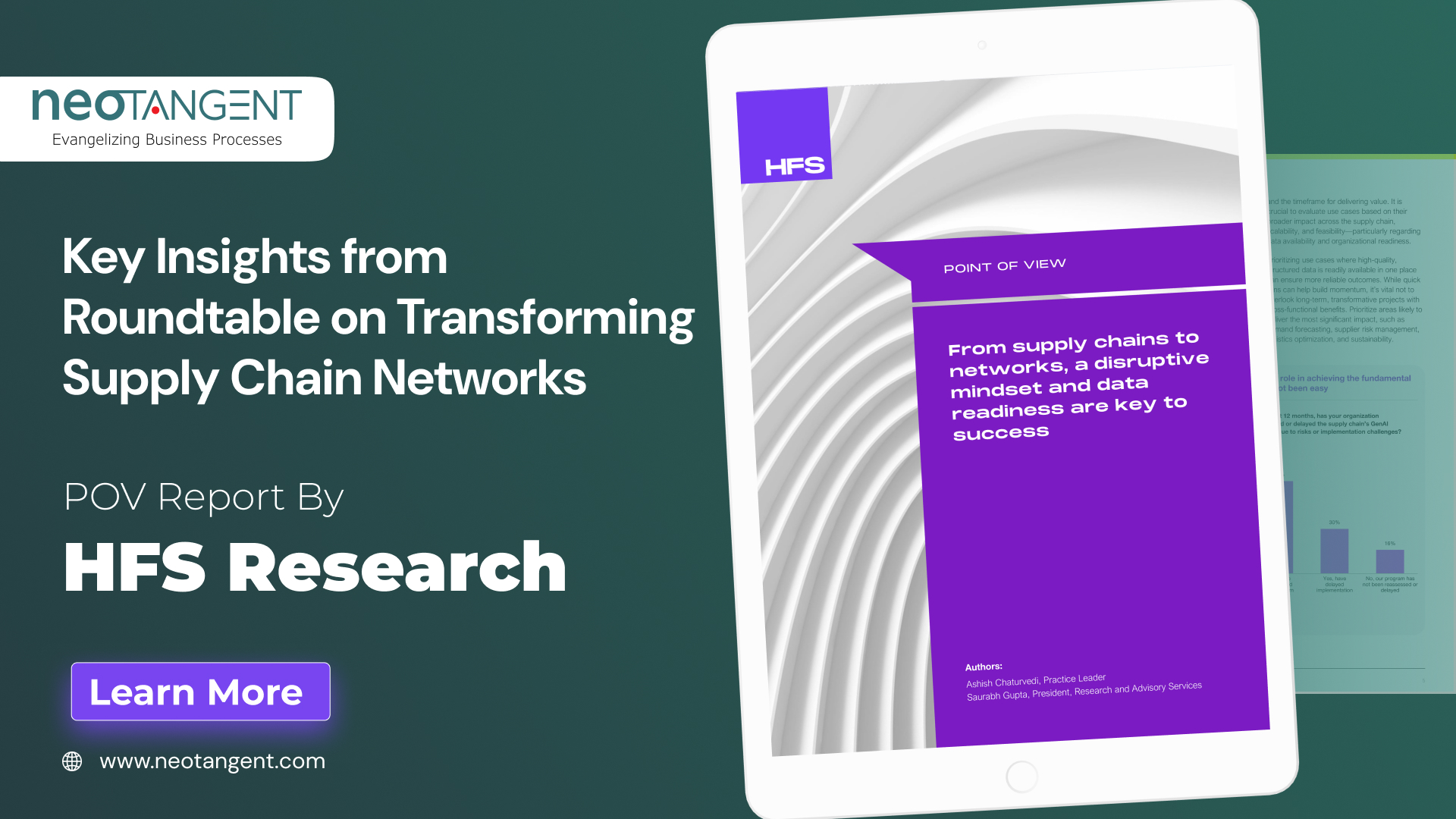Embracing the Future: Key Insights from Roundtable on Transforming Supply Chain Networks
HFS Research released a Point Of View (POV) article on September 16, 2024, titled "From Supply Chains to Networks: A Disruptive Mindset and Data Readiness Are Key to Success," exploring the insightful conversations and key takeaways from the exclusive roundtable hosted by Neo Tangent in New York City. The event on September 3 had gathered supply chain experts and thought leaders from industry giants like AB InBev, Estée Lauder, Google, Chubb, Deutsche Bank, HSBC, and Li & Fung to explore the future of supply networks.
A Shift in Mindset
Spencer Fung, Executive Chairman of Li & Fung, emphasized the need to move beyond the term 'supply chain'. He emphasized that the evolving landscape of interconnected networks presents challenges but also valuable opportunities. “The rapid turnover and frequent product launches in e-commerce challenge traditional metrics,” Fung stated, urging companies to adopt a disruptive mindset.
Overcoming Data Challenges
Participants discussed the crucial issue of 'data debt' which hampers companies' abilities to achieve end-to-end visibility within their networks. Fragmented data across departments complicates collaboration among manufacturers, distributors, and suppliers. Clear governance and ownership were deemed vital for effective integration.
Navigating Regulatory Complexity
The roundtable highlighted the necessity for adaptable frameworks to comply with increasingly diverse sustainability regulations across regions. Companies must develop customizable solutions to maintain compliance while fostering innovation.
Harnessing Generative AI
Generative AI (GenAI) emerged as a game changer for supply networks, although leaders acknowledged a slow adoption pace. The discussion underscored the importance of methodically selecting GenAI use cases aligned with business goals and ensuring high-quality data availability.
Balancing Resilience, Efficiency, and Sustainability
Participants agreed that resilience, efficiency, and sustainability should not be seen as competing interests but as interconnected priorities. The COVID-19 pandemic shifted focus toward resilience, leading to overstocking; however, the current landscape requires integrating all three elements in supply chain design.
The Path Forward
The roundtable concluded with a shared vision for building autonomous, future-ready supply networks that prioritize data quality, resilience, collaboration, and sustainability. Investing in technology and workforce development will be essential for organizations aiming to thrive in a rapidly evolving supply landscape.
